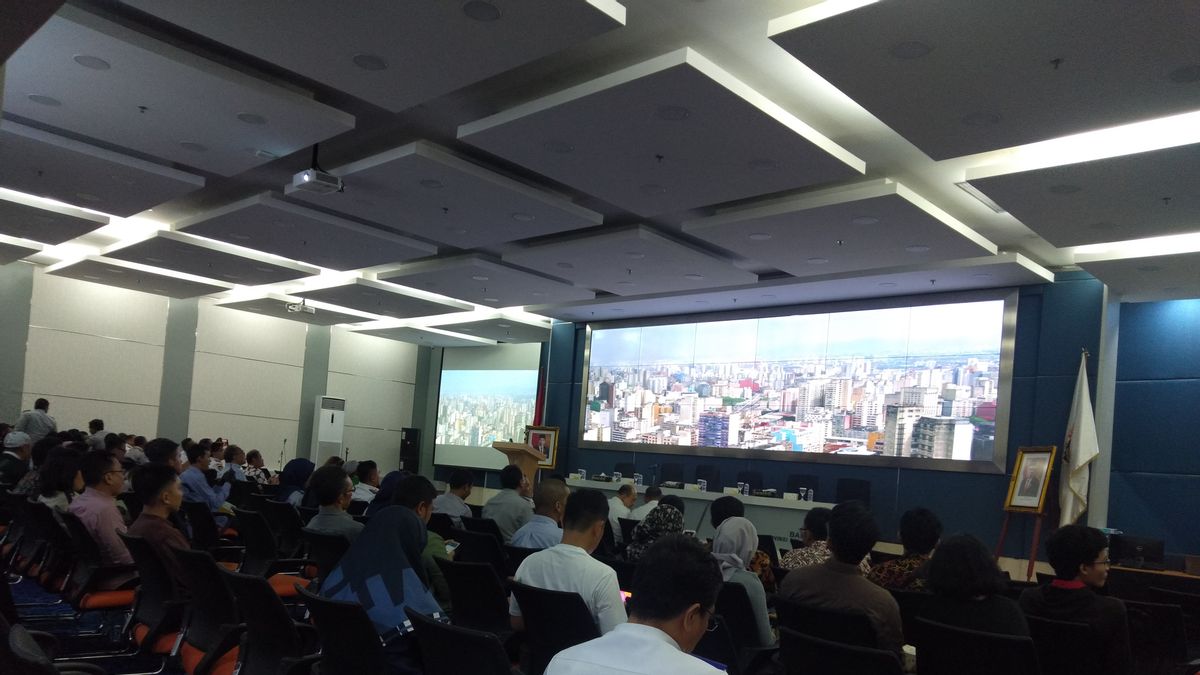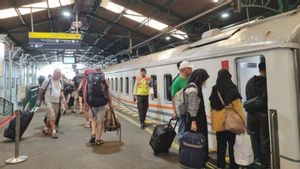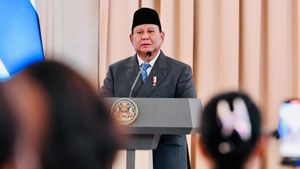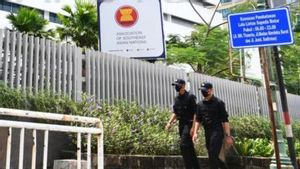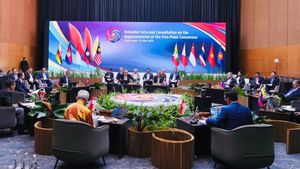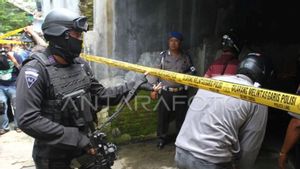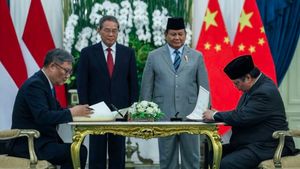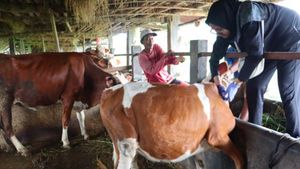JAKARTA - A number of members of the bicycle community, employees of the DKI Jakarta Transportation Agency, and several people gathered at the Pattern Room, DKI City Hall Building, Central Jakarta. Their presence was in order to watch together (Nobar) a documentary film entitled 'Bike VS Cars'.
The room lights were turned off, the movie was played for an hour and a half on the big screen in the room. This film tells about the challenges of cyclists in facing road conditions in their respective countries.
The audience watched, the story of a cyclist who lives in Los Angeles, California. This film invites the audience to explore the land that was a former bicycle lane that was made decades ago and now, the land has turned into a toll road and residential areas.

The location moved to Sao Paulo, Brazil. It tells of an overseas student who uses a bicycle every day because of the high cost of public transportation.
Unfortunately, the bicycle paths there do not support cyclists. The surveillance system that does not work properly results in motorists still at their own pace crossing the bicycle path.
This film realizes that the problem of being marginalized by bicycle users is not only experienced by Jakarta. All have the same problem, namely the government's interest in making policies and the rapid development of private vehicle users.
Currently, the DKI Provincial Government has facilitated special bicycle lanes on several roads in Jakarta. Law enforcement against private vehicle users crossing the bicycle path has also been enforced.
DKI Jakarta Governor Anies Baswedan said what needs to be done now is to build a habit of sharing space on the highway.
"If it has become a habit, then we will experience a better culture of traffic and bicycles. Therefore, we are committed to building this route as broadly as possible," Anies said at the location, Wednesday, November 27.
Meanwhile, urban planning observer, Nirwono Joga, views that without consistency in law enforcement from the government and police, it is certain that the use of bicycle lanes will not be sustainable.
In fact, the construction of a bicycle path has been started since the leadership of former DKI Governor Fauzi Bowo in 2009. The bicycle path is made from Ayudia Park to the City Hall of DKI. However, this path did not last long.
Then, when Basuki Tjahaja Purnama (Ahok) took office, a bicycle path along the East Flood Canal was created. Unfortunately, the line was not extended to another road.
"Without a special institution that handles the non-motorized transportation sector, the program will not run. Then, without integration with public transportation, we can be sure that people will not switch from private vehicles," explained Nirwono.
Therefore, Nirwono hopes that the DKI Provincial Government will commit to the mandate of the DKI Detailed Spatial Planning (RDTR) and Regional Spatial Planning (RTRW) which targets the construction of a 500 kilometer bicycle path.
At least, the DKI Jakarta Provincial Government has inaugurated 63 kilometers of bicycle paths which are divided into 3 phases. The first phase is 25 kilometers along the route of Jalan Medan Merdeka Selatan, Jalan MH Thamrin, Jalan Imam Bonjol, Jalan Pangeran Diponegoro, Jalan Proklamasi, Jalan Pramuka and Jalan Pemuda.
Then, the second phase is 23 kilometers with the route of Jalan Sudirman, Jalan Sisingamangaraja, Jalan Panglima Polim, and Jalan RS Fatmawati Raya. Next, the third phase is 15 kilometers along the route of Jalan Tomang Raya, Jalan Cideng Timur, Jalan Kebon Sirih, Jalan Matraman Raya, Jalan Jatinegara Barat and Jalan Jatinegara Timur.
Not only that, Pemperov has also started to impose ticket sanctions for motorcyclists who dare to cross the special bike lane. This sanction was imposed not long after the Governor of DKI Jakarta Anies Baswedan signed the Governor Regulation Number 128 of 2019 concerning the Provision of Bicycle Lanes. Where Anies wants more and more special bicycle lanes in the capital.
The English, Chinese, Japanese, Arabic, and French versions are automatically generated by the AI. So there may still be inaccuracies in translating, please always see Indonesian as our main language. (system supported by DigitalSiber.id)
